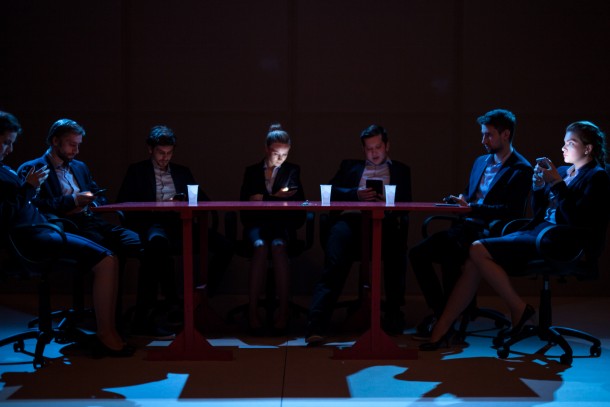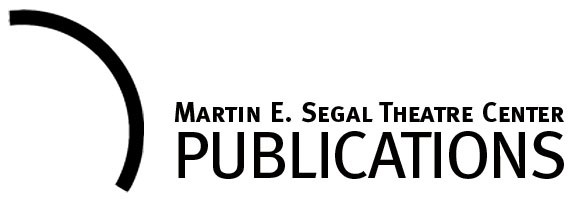We all know that Facebook is a global phenomenon and, one way or another, is influencing our daily lives, whether we like it or not. I know people who, for personal reasons, or just because they prefer to do something else with their time, refuse to create a Facebook account. I also know at least two persons, who got an account only in order to visit other internet places (as they needed a Facebook login for this) or they created one just because their employer asked them to for marketing reasons. I, myself, had a strange relationship with this social network. When it started to grow bigger and bigger in Eastern Europe, I had an account on a different, but similar platform. I realized that Facebook sounded interesting and cool, but I hesitated a lot before getting an account for two reasons: first, I was lazy and second, I had the strange feeling that I was cheating and disappointing my friends on the other social platform, which was quite popular. Of course, like so many other people, I was unaware of the huge reach Facebook was just beginning to accumulate. It was also too soon to think that if one does not have Facebook, they do not exist at all. Beyond this personal approach to the phenomenon, I need to say that I have had a Facebook account for more than seven years now and that I log in several times a day, on my laptop, phone and/or tablet. More than that, I soon started to use the social network for issues related to my job. As I teach, I use my students to post the readings for my classes, the events I want them to attend and also different, personal comments. This way, my message gets to them almost instantly (they are rarely checking their e-mail, maybe just once a day, but they are permanently connected to Facebook) and, even more important for me, I am always in charge. I know who has read my post; I know which one of my students has seen my post, so I am always aware of how interested they are in the issues I want them to deal with, I always have a constant and informal feedback. Consequently, for me, a 36-year-old man, Facebook is a great instrument for keeping in touch with my friends, to communicate with my students and (I definitely need to confess) to waste my time. Still, I am part of a generation that remembers very well what it was like “before Facebook.”
In such a cultural context, I frequently ask myself what is going on in teenagers’ minds as they grew up with this social network. For them, Facebook is the internet. Well, Bogdan Georgescu’s Antisocial, produced by the Department of Drama and Theatre Studies at Lucian Blaga University of Sibiu, together with Radu Stanca National Theatre in Sibiu, is trying to find some answers to this question. The idea for this play was born out of a scandal in early 2015, at Gheorghe Șincai High School, in Cluj-Napoca, Romania, where a couple of dozens students, who were part of a secret group on Facebook, were making fun of their teachers. Their problems started when one of the seven admins of this secret group sent an invite to an undercover teacher. In the end, the students were all exposed (some of them were grounded and some were expelled), as the teachers were scandalized, and all they wanted to do was to save the school’s reputation. Although the scandal was covered by the media, people soon forgot the whole story, but director Bogdan Georgescu was interested in writing a play based on what the students in Cluj-Napoca (and also the parents and the teachers) went through. He intended it as seed for discussion, trying to find out exactly what was going on in the students’ minds when they were making fun of their teachers. As far as I am concerned, the play raises some very uncomfortable questions regarding intimacy, online security, safety, censorship, and dialogue.
Antisocial uses some very minimalistic means: seven students (three girls and four boys) are sitting around a large table and talk to each other, as they are trying to find out which one was the “mule.” They started a secret group where all the teachers were being mocked and it is very clear that one of them sent an invite to one of the professors. Beyond different insults in their dialogue, the problem is real—they need to communicate in order to find out a piece of truth: who exactly was the traitor?

Antisocial by Bogdan Georgescu. Photo credit: Adi Bulboacă.
As the seven teenagers keep talking, the audience rapidly spots different types among the characters: there is the ‘brilliant’ and unadventurous student, who has won several national competitions (all her colleagues suspected that her parents bribed the teachers for this); we have the student that came from a modest school outside the city and she has a certain inferiority complex; we have the “cool” student; and we also have the lousy student that just does not care about school and his future career. Here, Georgescu’s method is impressive, as the audience in Romania already knows him as a director who is interested in developing social theatre plays. We have the characters’ biographies as a first level and on top of them we have a second level of biographical details—that is the actors’—who even give their first names to the students they are playing. In having such a strategy for approaching the characters’ biographies, Georgescu’s technique clarifies the meaning of the stage play he has written and directed: the actors will relate directly to the characters, they will feel that, as a matter of fact, they are talking one to another. The students’ experiences will be taken upon themselves by the actors and will connect to their own way of thinking and interpreting these problems. The audience, on the other hand, will begin to realize the context and the problems among the characters starting with the apparent familiarity that floats around the seven students. Of course, it would be impossible for anybody in the audience who is not familiar with the actors’ biographies to draw a precise line and to know exactly where the student in the story ends and when the actor in the play starts. Most likely, drawing such a line is not even important. It might merely be useful to the actors, as this is the best way they can shoulder the responsibility of the characters they are playing and personally relate to them and develop complex relationships with each other onstage. Moreover, through such a technique, the actors would easily face the personae they will play during that sixty minutes of the play. Let’s put it this way: having written the play together with the actors and also directing it, Bogdan Georgescu’s strategy is to mix of biographies of characters and actors. He wanted the actors to be the characters they will interpret, in order to have a solid base on which he could build the rest of the play.
In the next scene, the actors play the teachers, as the second party in the scandal at Gheorghe Șincai High School, in Cluj-Napoca. This part of the play takes place in the teachers’ lounge, where they smoke and debate on whether the students need to be expelled, grounded, or just warned. Soon, almost all of the seven teachers sitting around the table find a common denominator: they need to protect the school’s reputation by any means possible and they also need to set up a decisive example, so that such “derailments” from the students’ side will never happen again. Again, we have a similar technique as in the previous episode, when the actors played the students; the actors will credit the characters (now the teachers) with their surnames and they will address each other by “Mr.” or “Mrs.” In general, the tone they use in this particular scene is filled with irony and also with small offences; everything is covered in a cold, impersonal courtesy, as we now are in the teachers’ room and teachers are very formal, are they not? During the first scene, communication and trust were at stake but now, the teachers are avoiding the problem: the procedures they need to follow and also their idleness are affecting their clear judgment. For instance, because the high schoolThe secret group on Facebook has been deleted since it had been discovered by the teachers. But, they successfully printed it out, so they have a hard copy backup. The procedure implies that the teachers would read all the papers (a huge stack) and they would punish the students according to how many likes, shares and comments they had. This particular operation is a Sisyphean task and the audience will not be surprised by the reactions some of the teachers have: “wow, did she print out the whole Internet?” Just like in the previous moment, here we also have different shades in the construction of the teachers’ characters: one of them does not care at all about the students; there is one who is an alcoholic; but we also have teachers that are quasi-utopian. They entertain the idea that the students’ rough, vulgar, and often sexually explicit sense of humor in the former secret group on Facebook needs to be polished and the students need to be guided, in order to edit a magazine where they can freely channel their creative energies, instead of “spending” them inadequately. As far as I’m concerned, the endpoint of this particular moment, with the teachers onstage, is quite clear—the audience gets the chance look in the abysmal and bureaucratic apparatus of the contemporary educational system (similar to Charles Dickens’s Bleak House). In this case, the performance emphasizes the way teachers prefer to protect the school’s fame, instead of having an open and direct relationship with the students. Unfortunately, more and more often, the teacher is not a mentor, with whom the students can always have an open dialogue; they are authority figures who want to assert their visons and ways of thinking by any means possible—they are some form of coordinator, interested only in the academic results of their students. More and more often, the teachers are not envisaging teaching as an organic process, but as a means to itself.
Equally, what Georgescu wants to prove, regarding this particular moment of the play, is how the teachers’ debate and dialogue are not fundamentally different from the students’ small talk: the episodes have the same architecture; the stage has the same set; the characters are keeping their costumes (uniform-like): there is the same table onstage—only the actors’ places around it is different. Having all this onstage produces the same result as the previous scene. The students were interested in finding the traitor and, now, the teachers are interested only in punishing the kids, coordinating the group, and then rapidly glossing over this embarrassing moment in the history of the most prestigious high school in town, where they have the great honor to teach.

Antisocial by Bogdan Georgescu. Photo credit: Adi Bulboacă.
The final episode brings onstage the parents, the third vantage point on the scandal. Again, there are some different types of characters, that we can distinguish from the first lines; we have two fathers ready to bribe the teachers in order to wipe off this unpleasant moment in their children’s lives, hoping that everything will go away. There also is a simple lady, who moved to the city from a small village, whose most pressing concern is that her daughter embarrassed her and herself. Also, there is a lady who is only interested in raising the amount of money for the prom party (while her daughter might be expelled) and a couple that can not agree with the simplest of problems, let alone essential questions about their child. The actors’ biographies are not intersected with the characters they play anymore: we have the parents onstage, around the same table, untouched by any exterior biographical influence.
These episodes keep alternating and each one lasts for around ten minutes. The oscillation from one to another is marked onstage by the fading of the lights and by the actors that move around the table. They continue sitting around the table throughout the whole play and during the first couple of minutes, as the audience is taking their seats, we can see them watching their smartphones, probably facebooking. The smartphone is now an extension of their bodies and has lost its initial use—that of being a mean of communication through voice—and is now the most common way of getting on Facebook.
In such a stage framework, constantly branded by the existence of the smartphone, Georgescu is conducting his actors through means similar to cinema: the shift from one episode to another is abrupt marked by light and also sound effects. The seven actors need to be very focused on their interlocutor but also on the other actors onstage. While punctuated with comic moments, however, the production does first, as in a good “whodunit” story, since the first moment of the play, the audience will be interested to find out a certain answer (who the traitor is). Second, the audience will react emotionally, picking sides, choosing one or more favorite students, teachers or parents, being part of the debate and also of the dialogue that the whole project intends to be.
Needless to say, the show’s impact was quite huge. Being staged only two months after the scandal at Gheorghe Șincai High School in Cluj-Napoca (Romania), it drew huge audiences and it was one of the highlights of the 2015 edition of Sibiu International Theatre Festival. Furthermore, one of the most important banks in Romania (BRD Groupe Société Générale) financed a six week long national tour, with more than twenty presentations of the play last fall, as part of their strategy to promote art and to create dialogue. The actors presented Antisocial mostly in high school venues, and the show was followed by a short debate on the problems of the educational system in Romania. Now, one year after the opening, Antisocial still draws full houses, as the problems it addresses are (unfortunately) never-ending.
is a Professor at “Lucian Blaga” University, Sibiu, and Head of the Department of Drama and Theatre Studies. He is member of the Centre for Advanced Studies in the Field of Performing Arts (Cavas). He has published studies, book reviews, theatre reviews, and essays in prestigious cultural magazines and academic journals in Romania and Europe. Since 2005, he has been co-editor of the annual Text Anthology published by Nemira Publishing House for each edition of the Sibiu International Theatre Festival. Since 2005, Mr. Tomuș is part of the staff at Sibiu International Theatre Festival (SITF is the third performing arts festival in the world, preceded by the ones in Edinburgh and Avignon).
European Stages, vol. 6, no. 1 (Spring 2016)
Editorial Board:
Marvin Carlson, Senior Editor, Founder
Krystyna Illakowicz, Co-Editor
Dominika Laster, Co-Editor
Kalina Stefanova, Co-Editor
Editorial Staff:
Elyse Singer, Managing Editor
Clio Unger, Editorial Assistant
Advisory Board:
Joshua Abrams
Christopher Balme
Maria Delgado
Allen Kuharsky
Bryce Lease
Jennifer Parker-Starbuck
Magda Romańska
Laurence Senelick
Daniele Vianello
Phyllis Zatlin
Table of Contents:
- Hamlet in a Curious Nutshell by Maria Helena Serôdio
- Alvis Hermanis Productions in Latvia and German-Speaking Countries by Edīte Tisheizere
- The Unknown, the Unexpected, and the Uncanny: A New Lorca, Three New Catalan Productions, and a Few Extras by Maria M. Delgado
- 2015 Dance Week Festival and Contemporary Croatian Dance by Mirna Zagar
- Archives, Classics, and Auras: The 2016 Oslo International Festival by Andrew Friedman
- The Stakes for City Theatres: Linus Tunström’s Farewell to the Uppsala Stadsteater by Bryce Lease
- Life is Beautiful? or Optimistically About Bulgarian Theatre? by Kalina Stefanova
- The Multiple Dimensions of the Bulgarian ACT Independent Theatre Festival 2015 by Angelina Georieva
- Theatre in Berlin, Winter 2015 by Steve Earnest
- Musical Theatre in Berlin, Winter 2015 by Steve Earnest
- Gob Squad’s My Square Lady at the Komische Oper by Clio Unger
- New Productions in Berlin by Yvonne Shafer
- Manifest for Dialogue: Antisocial by Ion M. Tomuș
- A Fall in France by Heather Jeanne Denyer
- The Iliad as an Oratory: A Warning to a Civilization by Ivan Medenica
- Escaped Alone by Caryl Churchill at the Royal Court Theatre by Rosemary Malague
- Bakkhai at the Almeida Theatre reviewed by Neil Forsyth
Martin E. Segal Theatre Center:
Frank Hentschker, Executive Director
Marvin Carlson, Director of Publications
Rebecca Sheahan, Managing Director
©2016 by Martin E. Segal Theatre Center
The Graduate Center CUNY Graduate Center
365 Fifth Avenue
New York NY 10016



